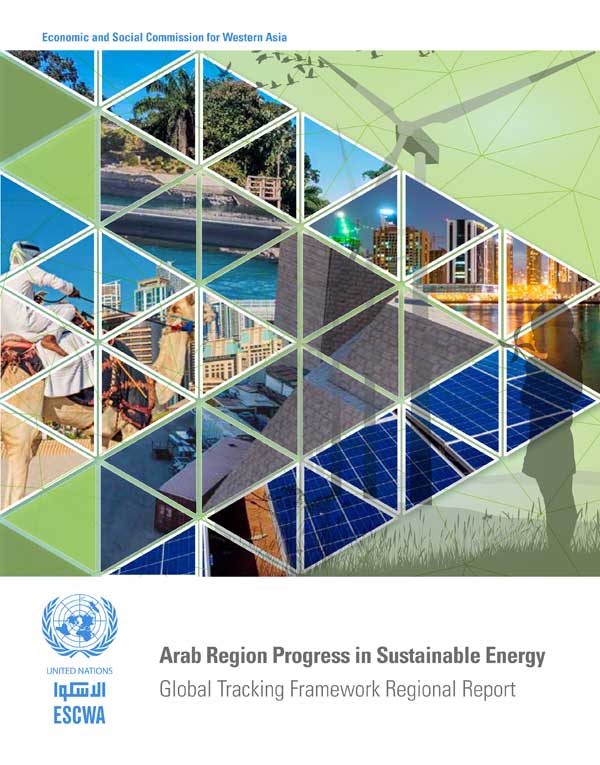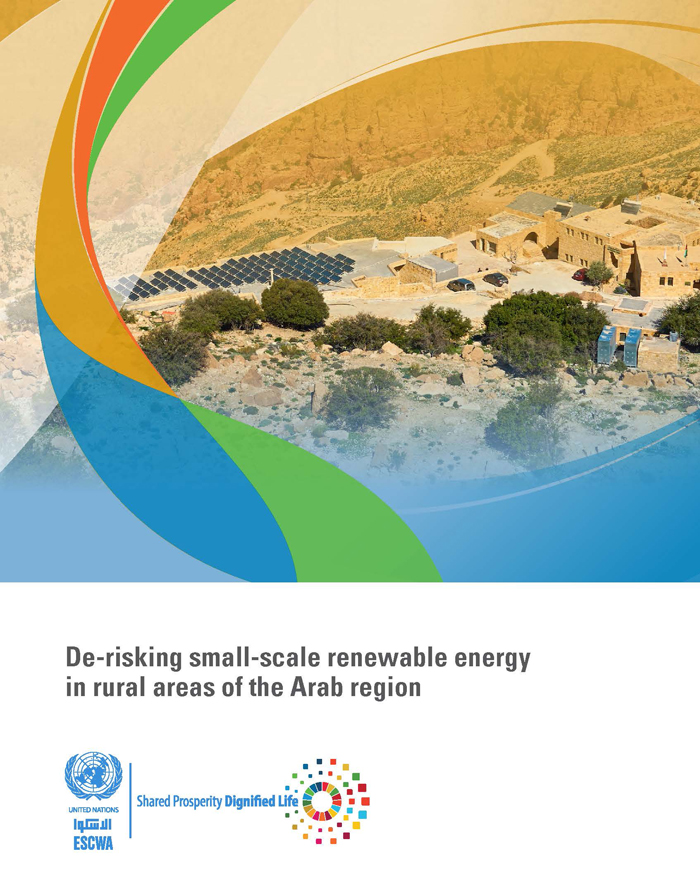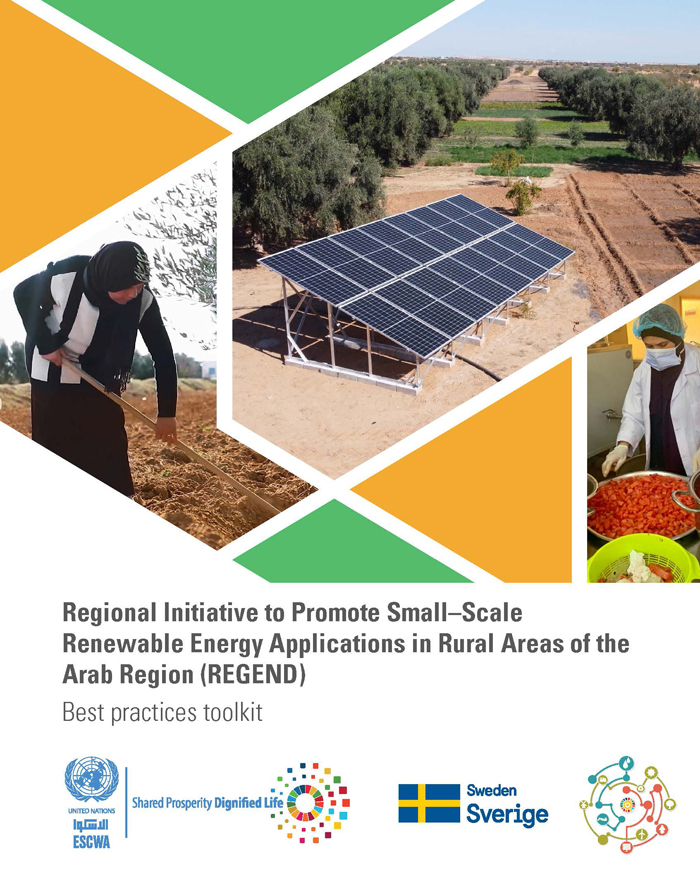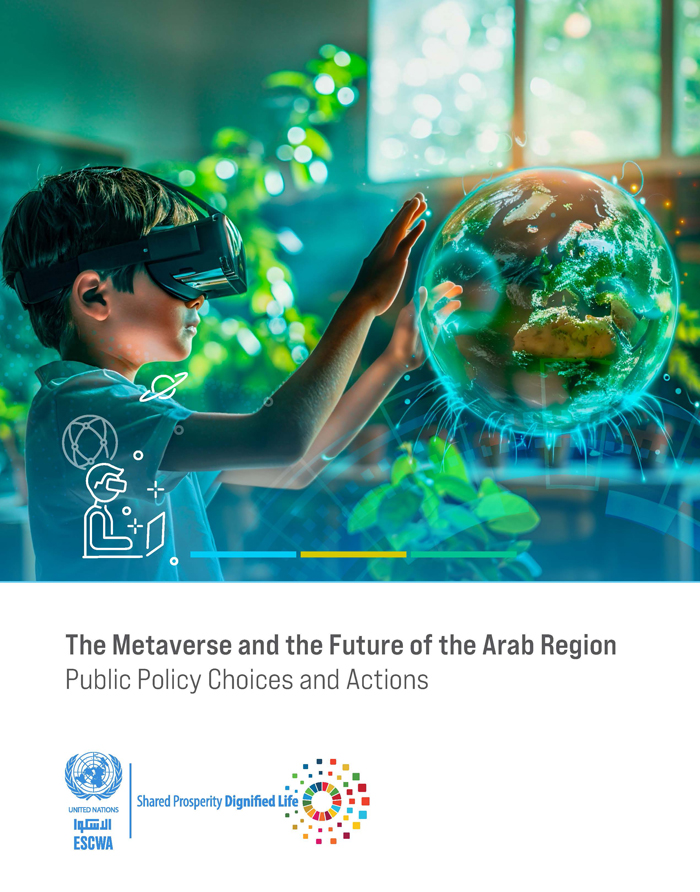
ESCWA Publication: E/ESCWA/SDPD/2017/2
Country: Arab region
Publication Type: Reports & studies
Cluster: 2030 Agenda and SDG Coordination
Focus Area: Natural resource sustainability
Initiatives: Promoting renewable energy investments
SDGs: Goal 7: Affordable and Clean Energy
Keywords: Arab countries, Capacity building, Energy efficiency, North africa, Supply and demand, Sustainable development, Sustainable energy, Energy efficiency, Energy policy, Renewable energy sources
Arab Region Progress in Sustainable Energy Global Tracking Framework Regional Report
January 2017
The Arab region lacks sustainable natural resource management, mostly in the areas of energy efficiency and its overwhelming reliance on fossil fuels for virtually all its energy needs. War, political instability, and consequent displacement and migration, particularly in low- and lower-middle-income countries, further accelerate pressure on urban living space and resources. Sustainable-energy development is not a priority that is more relevant to any one Arab country rather than another, nor a choice between high growth and low growth. Progress in SDG 7 will be a critical contributing factor to managing the multi-faceted challenges faced by Arab countries over the coming years and decades.
The report focuses on three key pillars that underlie both the Sustainable Energy for All (SE4ALL) initiative and the United Nations Sustainable Development Goals (SDGs). It also provides a sub-regional overview of a broad range of indicators and in-depth analysis of the progress made by the Arab region, over the past two decades, in sustainable energy development with focus on energy access to modern clean fuels and technologies energy efficiency and the deployment of renewable energy. It also provides a set of policy recommendations for the region that includes institution and capacity building, financial, and market restructuring aspects.
Related content
Natural resource sustainability
,
The Arab region lacks sustainable natural resource management, mostly in the areas of energy efficiency and its overwhelming reliance on fossil fuels for virtually all its energy needs. War, political instability, and consequent displacement and migration, particularly in low- and lower-middle-income countries, further accelerate pressure on urban living space and resources. Sustainable-energy development is not a priority that is more relevant to any one Arab country rather than another, nor a choice between high growth and low growth. Progress in SDG 7 will be a critical contributing factor to managing the multi-faceted challenges faced by Arab countries over the coming years and decades.
The report focuses on three key pillars that underlie both the Sustainable Energy for All (SE4ALL) initiative and the United Nations Sustainable Development Goals (SDGs). It also provides a sub-regional overview of a broad range of indicators and in-depth analysis of the progress made by the Arab region, over the past two decades, in sustainable energy development with focus on energy access to modern clean fuels and technologies energy efficiency and the deployment of renewable energy. It also provides a set of policy recommendations for the region that includes institution and capacity building, financial, and market restructuring aspects.



